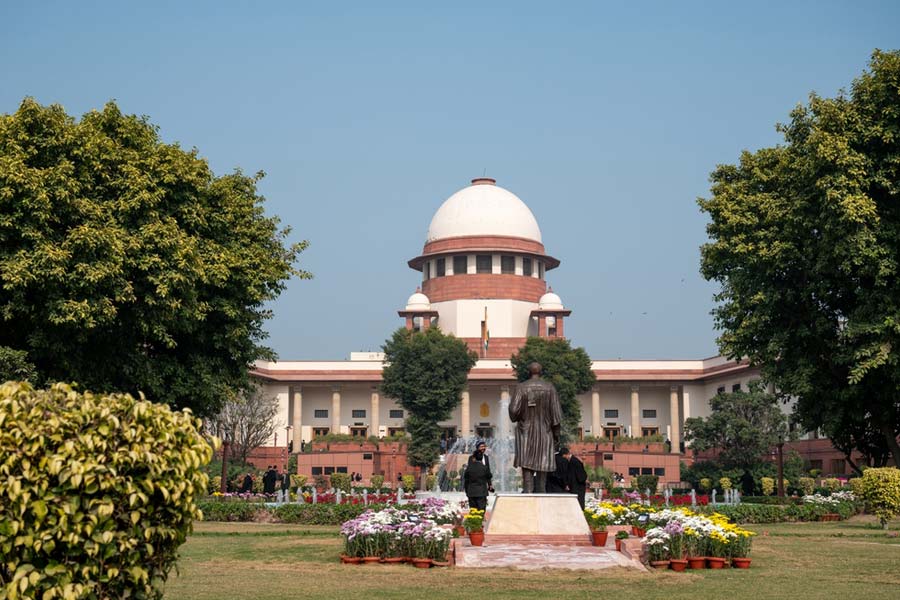The Supreme Court on Friday sought a response from the Centre on a PIL challenging the constitutional validity of Section 152 of the BNS, seen as the successor to the colonial-era sedition law, which “threatens democratic discourse and the right to dissent”.
A bench of Chief Justice of India B.R. Gavai, Justice K. Vinod Chandran and Justice N.V. Anjaria was hearing the PIL filed by Major General S.G. Vombatkere (Retd), who had challenged Section 124A (sedition) of the erstwhile IPC that was replaced by the BNS.
The apex court had stayed the operation of Section 124A of the IPC throughout the country in May 2022 and suggested that the draconian law be deleted from the statute.
The petition has challenged the constitutional validity of Section 152 of the BNS as being violative of Articles 14, 19(1)(a) and 21 of the Constitution.
“The impugned provision, in effect, reintroduces the colonial sedition law previously codified as Section 124A of the Indian Penal Code, 1860, under a new nomenclature. Though the language is altered, its substantive content — criminalising vague and broad categories of speech and expression such as ‘subversive activity’, ‘encouragement of separatist feelings’, and acts ‘endangering unity or integrity of India’— remains the same or is even more expansive. Section 152 of the Bharatiya Nyaya Sanhita is nothing but a repackaged sedition law, reinstated despite the pending challenge and suspension of Section 124A,” the petition stated.
The petitioner argued that Section 152 of the BNS, which dealt with the “act endangering sovereignty, unity and integrity of India”, criminalised a broad range of expressive acts that entailed punishments ranging from seven years to life imprisonment.
The terms “endangering”, “sovereignty”, “unity”, and “integrity” are undefined in the BNS or any other statute, the PIL submitted, adding that these abstract constitutional ideals cannot serve as legally determinable standards.
“The term ‘endangering’ is particularly elastic and imprecise... As a result, the title invites prosecutorial and police discretion, leading to arbitrary and discriminatory application, especially against dissenters, minorities, journalists and civil society actors,” the petitioner said.










